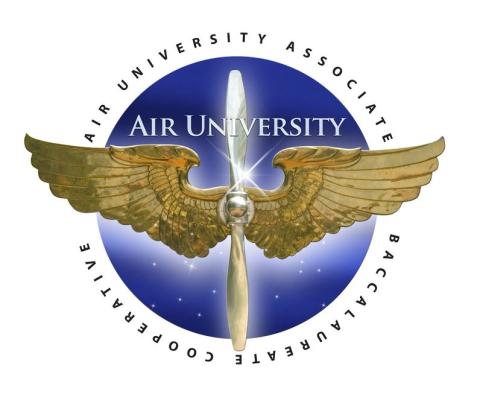The public administration profession offers a range of career paths such as municipal management, law enforcement, firefighting, and even nonprofit roles that serve the community.
Credit Hours: 120 | Transfer: Up to 90 Credits | Tuition Cost
Seek Leadership Roles in the Public Administration Fields
This program is designed for those who have established a foundation or a career in these fields, and will build upon what you’ve already learned on-the-job and through prior study.
This four-year administration program offers courses related to public policy, leadership, human resource management, and public sector budget and finance.
Course Highlights
- Introduction to Public Administration
- Career Development and Life Planning
- Introduction to Data Analytics
- Change Management
- Excel
- Introduction to Ethics
- Statistics
- Public Policy Development and Implementation
- Public Sector Budget and Finance
- Human Resources in the Public Sector
…and more!
Why UNH CPS?
- Regionally accredited by the New England Commission on Higher Education, Inc. (NECHE).
- Available fully online with select on-campus courses.
- Affordable tuition.
- Nationally ranked online programs.
- About 89% of our students are transfer students. Making the most of your transfer credits is our specialty.
- Career advising is available to all students and alumni. We also extend this service to those considering their college options.
- Faculty who are subject matter experts and share their real-world expertise, helping you apply what you learn to your personal goals and career.
- We’re experts at assessing credit toward your undergraduate degree – not only from previous college coursework, but also for other college-level knowledge demonstrated outside the traditional classroom.
Whether you completed your associate degree or took a few courses, we have experience working with community college students nationwide and we are experts at maximizing your transfer credits. We are proud of our formal partnerships to support community college graduates through our Transfer Pathways.
Students pursuing an associate degree at a New Hampshire community college are encouraged to explore our Transfer Pathway below.
- Completion of our free, online application for admission
- High school diploma, completion of a high school education in a homeschool setting under state law, or demonstrate high school equivalency.
- Successful completion of one of the following exams will be required for demonstrating high school equivalency: the GED, HiSET, or TASC
For motivated undergraduate students interested in pursuing a graduate degree, you can pair this program with an accelerated M.S. in Leadership option that allows you to streamline the completion of your educational goals. This option allows students to complete their bachelor’s and graduate degrees in a fast-tracked five-year timeline.
Qualifications:
- Current UNH undergraduate student enrolled in one of the following programs:
- GPA of 3.2 or higher.
- Apply and be accepted to the M.S. Leadership program.
- Completed 90 undergraduate credits (to begin taking courses for dual credit). Most students apply in their junior year; once admitted to the program, students can begin taking select courses for dual credit, provided they’ve completed 90 undergraduate credits.
If you're interested in enrolling in an accelerated graduate program, contact your advisor.
Curriculum & Requirements
This degree plan is a sample and does not reflect the impact of transfer credit or current course offerings. UNH CPS Online undergraduate students should develop individual academic plans with their academic advisor during their first year at UNH.
Sample Course Sequence
| First Year | ||
|---|---|---|
| Fall | Credits | |
| APST 405 | Career Development and Planning | 2 |
| CMPL 402 | Excel | 2 |
| ENG 420 | The Writing Process | 4 |
| PADM 500 | Introduction to Public Administration | 4 |
| General Education Course | 4 | |
| Credits | 16 | |
| Spring | ||
| COM 460 | Interpersonal Communication and Group Dynamics | 4 |
| CRIT 501 | Introduction to Critical Inquiry | 4 |
| HUMN 480 | Introduction to Ethics | 4 |
| MTH 402 or MTH 504 or MTH 510 | Math for Our World or Statistics or Pre-Calculus | 4 |
| Credits | 16 | |
| Second Year | ||
| Fall | ||
| COM 480 | Visual Communication | 4 |
| HRM 580 | Change Management | 4 |
| MTH 504 | Statistics | 4 |
| General Education Course | 4 | |
| Credits | 16 | |
| Spring | ||
| DAT 510 | Introduction to Data Analytics | 4 |
| LD 600 or LD 660 | Becoming an Effective Leader or Leadership Theory | 4 |
| General Education Course | 4 | |
| Elective | 4 | |
| Credits | 16 | |
| Third Year | ||
| Fall | ||
| CRIT 602 | Advanced Critical Analysis and Strategic Thinking | 4 |
| PADM 600 | Public Policy Development and Implementation | 4 |
| COM 665 or LD 725 | Media and Strategic Communication or Volunteer Leadership | 4 |
| Elective | 4 | |
| Credits | 16 | |
| Spring | ||
| PADM 645 | Public Sector Budget and Finance | 4 |
| PADM 670 | Human Resources in the Public Sector | 4 |
| Elective | 4 | |
| Elective | 4 | |
| Credits | 16 | |
| Fourth Year | ||
| Fall | ||
| APST 705 or MGMT 706 | Grant Writing or Fundraising and Resource Development | 4 |
| IDIS 601 | 4 | |
| Elective | 4 | |
| Elective | 4 | |
| Credits | 16 | |
| Spring | ||
| MGMT 797 or MGMT 795 | Integrative Capstone: Industry-Based Project or Integrative Capstone: Industry-Based Internship | 4 |
| Elective | 4 | |
| Credits | 8 | |
| Total Credits | 120 | |
Degree Requirements
General Education Program Requirements
A minimum grade of D- is required in all General Education coursework. Students are allowed a maximum of two course overlaps. Overlaps can be used between Major, Minor and General Education requirements with only 8 credits overlapped between the Major and Minor.
All General Education requirements must be taken prior to the capstone.
| Code | Title | Credits |
|---|---|---|
| ENG 420 | The Writing Process | 4 |
| COM 460 | Interpersonal Communication and Group Dynamics | 4 |
| COM 480 | Visual Communication | 4 |
| CRIT 501 | Introduction to Critical Inquiry | 4 |
| Select one of the following: | 4 | |
MTH 402 | Math for Our World | |
MTH 504 | Statistics | |
MTH 510 | Pre-Calculus | |
| Knowledge of Human Behavior & Social Systems | 4 | |
| Knowledge of the Physical & Natural World | 4 | |
| Knowledge of Human Thought & Expression | 4 | |
| CRIT 602 | Advanced Critical Analysis and Strategic Thinking | 4 |
| IDIS 601A | Interdisciplinary Seminar: Being Happy | 4 |
| or IDIS 601B | Interdisciplinary Seminar: Business of Beer | |
| or IDIS 601C | Interdisciplinary Seminar: Paranormal Activities | |
| Total Credits | 40 | |
Writing Program Requirements
All bachelor's degree candidates are required to complete four writing intensive courses as part of the University Writing Program Requirements as follows:
| Code | Title | Credits |
|---|---|---|
ENG 420 | The Writing Process | |
One Writing Intensive course in the Major | ||
One Writing Intensive course at the 600-level or above | ||
One Additional Writing Intensive Course | ||
Writing Intensive courses are identified with the label "Writing Intensive Course" in the "Attributes" section of the course description and/or a W following the course number.
Major Requirements
Prior to capstone enrollment, students are expected to complete the majority of their required major courses along with CRIT 602 Advanced Critical Analysis and Strategic Thinking and IDIS 601 . Students should consult with their advisor regarding specific major courses that may be completed with their capstone. Academic Advisor approval is required for registration to be processed.
| Code | Title | Credits |
|---|---|---|
| Major in Public Administration | ||
| Foundation Courses | ||
| APST 405 | Career Development and Planning | 2 |
| CMPL 402 | Excel | 2 |
| DAT 510 | Introduction to Data Analytics | 4 |
| HUMN 480 | Introduction to Ethics | 4 |
| PADM 500 | Introduction to Public Administration | 4 |
| Intermediate Courses | ||
| MTH 504 | Statistics | 4 |
| HRM 580 | Change Management | 4 |
| PADM 600 | Public Policy Development and Implementation | 4 |
| PADM 645 | Public Sector Budget and Finance | 4 |
| PADM 670 | Human Resources in the Public Sector | 4 |
| Advanced Courses | ||
| APST 705 | Grant Writing | 4 |
| or MGMT 706 | Fundraising and Resource Development | |
| LD 600 | Becoming an Effective Leader | 4 |
| or LD 660 | Leadership Theory | |
| LD 725 | Volunteer Leadership | 4 |
| or COM 665 | Media and Strategic Communication | |
| Integrative Capstone | ||
| MGMT 795 | Integrative Capstone: Industry-Based Internship | 4 |
| or MGMT 797 | Integrative Capstone: Industry-Based Project | |
| Total Credits | 52 | |
Electives
Open electives are courses students will need to take in addition to their general education and major requirements in order to satisfy the remaining credit totals for their programs. Open electives are defined as any credit course offered by the College not already included in the student's general education, major, option or minor. Students will need 120 credits total to graduate with a bachelor's degree from the Online Division of the College of Professional Studies.
Program Learning Outcomes
- Develop the ability to lead and manage in the public interest.
- Participate in, and contribute to, the policy process.
- Analyze, synthesize, think critically, solve problems, and make evidence-informed decisions in a complex and dynamic environment.
- Articulate, apply, and advance a public service perspective.
- Communicate and interact productively and in culturally responsive ways with a diverse and changing workforce and society at large.
Your Prior and Current Learning Counts
Many of our students can demonstrate college-level knowledge gained from military, workplace and volunteer-based training, and experiences. We are experts at helping students demonstrate learning and earning academic credit.
Opportunities for Airmen

The AU-ABC partnership between Air University and the UNH College of Professional Studies allows you to apply your CCAF Associate in Applied Science toward this online bachelor's degree. All CCAF degrees are transferable into this program. earn More About Community College of the Air Force AU-ABC
Career Outcomes
Talk with your advisor to discuss how your program, experience, and goals align.
